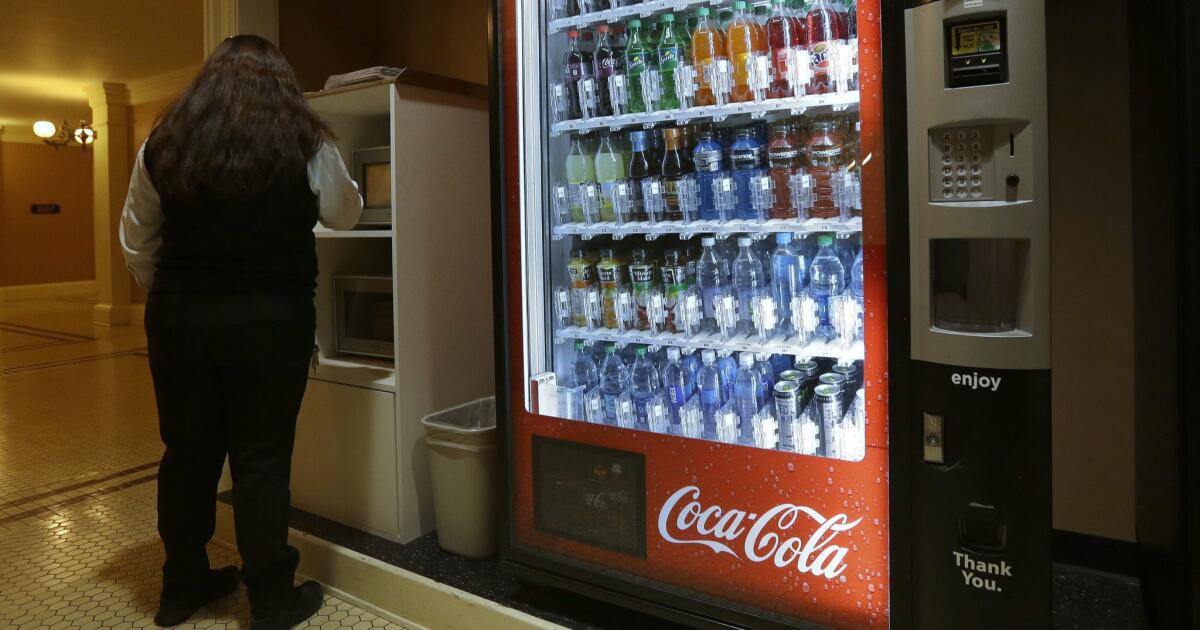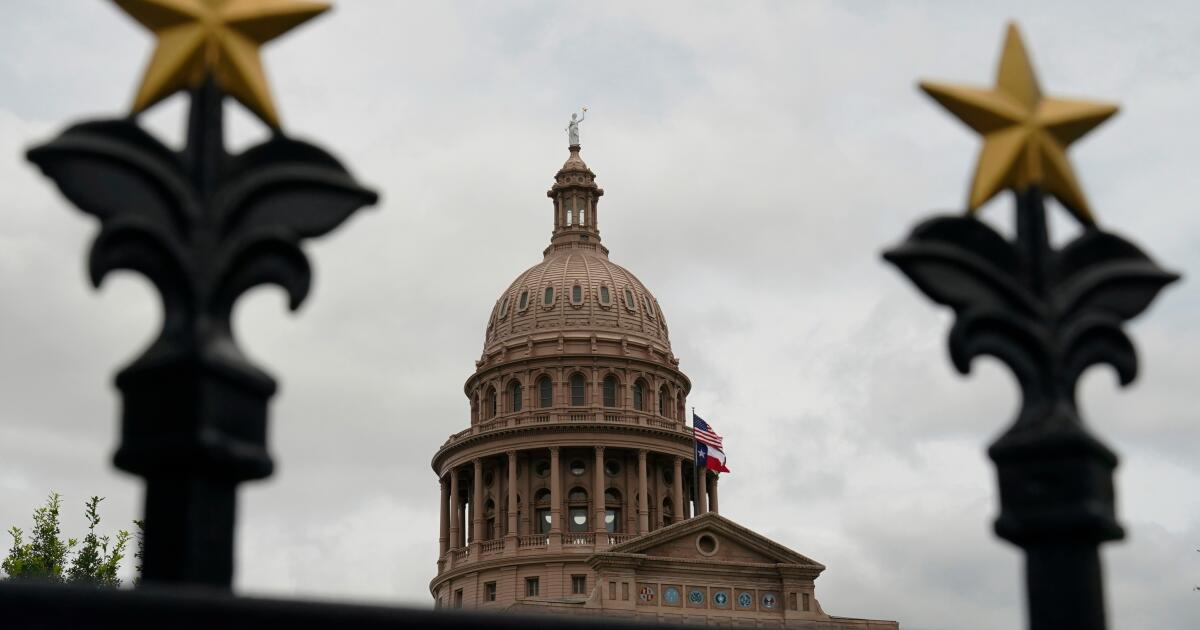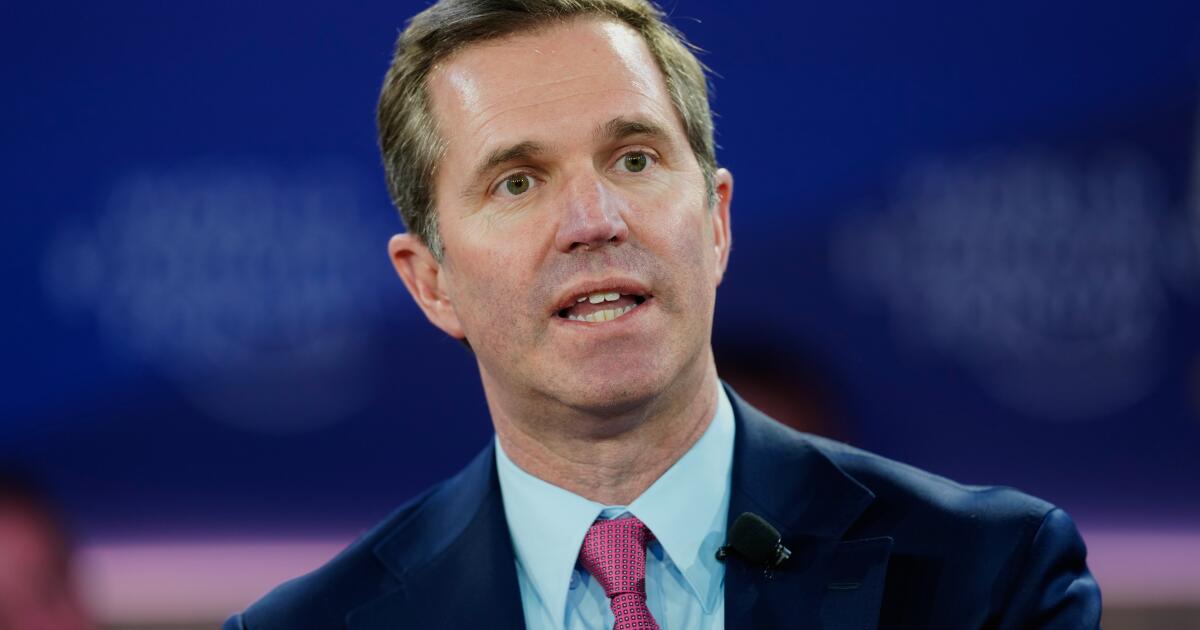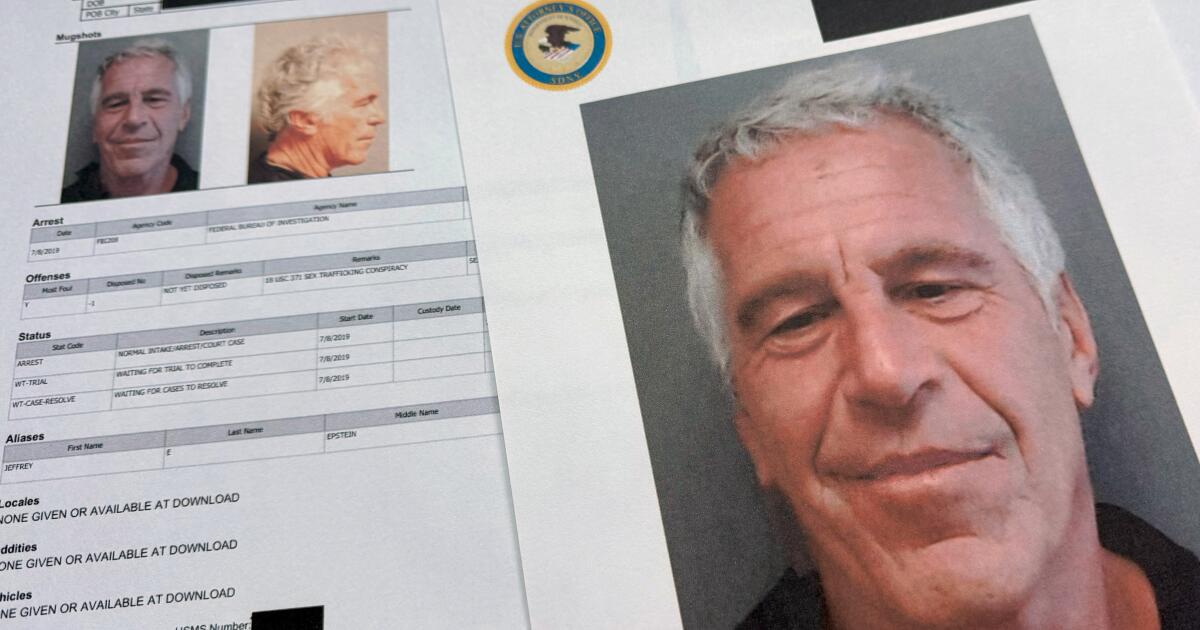Johnson says no quick House vote to end shutdown, blames Democrats
WASHINGTON — House Speaker Mike Johnson said Sunday that it will be a few days before a government funding package comes up for a vote, all but ensuring the partial federal shutdown will drag into the week as Democrats and Republicans debate reining in the Trump administration’s divisive immigration enforcement operations.
Johnson signaled he is relying on help from President Trump to ensure passage. Trump struck a deal with Democratic senators to separate out funding for the Department of Homeland Security from a broader package after public outrage over two shooting deaths during protests in Minneapolis against the immigration crackdown there. The measure approved Friday by the Senate would fund Homeland Security for two weeks, setting up a deadline for Congress to debate and vote on new restrictions on Immigration and Customs Enforcement operations.
“The president is leading this,” Johnson (R-La.) said on “Fox News Sunday.”
“It’s his play call to do it this way,” the speaker said, adding that the Republican president has “already conceded that he wants to turn down the volume” on federal immigration operations.
Johnson faces a daunting challenge ahead, trying to muscle the funding legislation through the House while Democrats are refusing to provide the votes for speedy passage. They are demanding restraints on ICE that go beyond $20 million for body cameras that already is in the bill. They want to require that federal immigration agents unmask and identify themselves and are pressing for an end to roving patrols, amid other changes.
Democrats dig in on ICE changes
“What is clear is that the Department of Homeland Security needs to be dramatically reformed,” House Democratic leader Hakeem Jeffries of New York said Sunday on ABC’s “This Week.”
Jeffries said the administration needs to begin negotiations now, not over the next two weeks, on changes to immigration enforcement operations.
“Masks should come off,” he said. “Judicial warrants should absolutely be required consistent with the Constitution, in our view, before DHS agents or ICE agents are breaking into the homes of the American people or ripping people out of their cars.”
It’s all forcing Johnson to rely on his slim House GOP majority — which will narrow further after a Democrat was elected to a vacant House seat in a Texas special election Saturday — in a series of procedural votes, starting in committee Monday and pushing a potential House floor vote on the package until at least Tuesday, he said.
House Democrats planned a private caucus call Sunday evening to assess the next steps.
Partial government shutdown drags on
Meanwhile, a number of other federal agencies are snared in the funding standoff as the government went into a partial shutdown over the weekend.
Defense, health, transportation and housing are among those that were given shutdown guidance by the administration, though many operations are deemed essential and services are not necessarily interrupted. Workers could go without pay if the impasse drags on. Some could be furloughed.
This is the second time in a matter of months that federal operations have been disrupted as Congress digs in, using the annual funding process as leverage to extract policy changes. In the fall, Democrats sparked what became the longest federal shutdown in history, 43 days, as they protested the expiration of health insurance tax breaks.
That shutdown ended with a promise to vote on proposals to extend the Affordable Care Act tax credits. But the legislation did not advance and Democrats were unable to achieve their goal of keeping the subsidies in place. As a result, insurance premiums have soared in the new year for millions of people.
Trump wants quick end to shutdown
This time, the administration has signaled its interest in more quickly resolving the shutdown.
Johnson said he was in the Oval Office last week when Trump, along with border advisor Tom Homan, spoke with Senate Democratic leader Chuck Schumer of New York to work out the deal.
“I think we’re on the path to get agreement,” Johnson said Sunday on NBC’s “Meet the Press.”
Body cameras for immigration agents, which are already provided for in the package, and an end to the roving patrols are areas of potential agreement, Johnson said.
But he said taking the masks off and putting names on agents’ uniforms could lead to problems for law enforcement officers as they are being targeted by the protesters and their personal information posted online.
“I don’t think the president would approve it — and he shouldn’t,” Johnson said on Fox.
Democrats, however, said the immigration operations are out of control, and it is an emergency situation that must end in Minneapolis and other cities.
Growing numbers of lawmakers are calling for Homeland Security Secretary Kristi Noem to be fired or impeached.
“What is happening in Minnesota right now is a dystopia,” said Sen. Chris Murphy (D-Conn.), who led efforts to hold the line for more changes.
“ICE is making this country less safe, not more safe today,” Murphy said on “Fox News Sunday.”
“Our focus over the next two weeks has to be reining in a lawless and immoral immigration agency.”
Mascaro writes for the Associated Press.


























